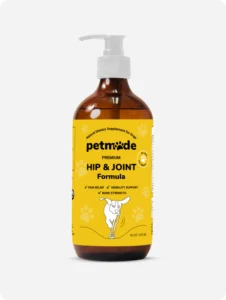9 Toy Poodle Health Problems and At-Home Care Tips
Toy Poodles captivate hearts with their spirited personalities, keen intelligence, and graceful movements. These pocket-sized companions bring endless joy to families worldwide. Yet caring for these special dogs means staying aware of certain wellness considerations unique to their petite frames and sensitive nature.
This guide walks you through common toy poodle health problems while offering practical, everyday strategies to support your pup’s wellbeing. You’ll discover simple routines that fit naturally into your daily life, helping your Toy Poodle thrive at every stage. Whether you’re welcoming a bouncy puppy or caring for a distinguished senior, these insights empower you to provide the best possible care.
For comprehensive information about this delightful breed, explore toy poodle breed information to deepen your knowledge of their unique traits and needs.
Are Toy Poodles Prone to Health Problems?
Do toy poodles have health problems more frequently than larger breeds? While generally healthy dogs with lifespans reaching 15-18 years, their compact size does create certain vulnerabilities. Small breeds face unique challenges related to delicate bone structure, faster metabolisms, and proportionally smaller organs.
Genetic factors influence health patterns in Toy Poodles, particularly when breeding focuses heavily on size reduction. Their petite frames mean joints bear concentrated stress, and their narrow airways require extra consideration. However, these health issues with toy poodles become manageable through informed care and preventive strategies.
The breed’s remarkable intelligence and sensitivity actually support wellness management. Toy Poodles quickly learn routines and communicate their needs clearly. Their alert nature helps pet parents notice subtle changes that might indicate developing toy poodle health concerns. This awareness, combined with appropriate lifestyle choices, transforms potential vulnerabilities into opportunities for attentive, loving care.
9 Common Toy Poodle Health Problems
Every Toy Poodle expresses their needs differently, and recognizing these signals helps you provide responsive care. The following wellness considerations appear more frequently in this breed due to their petite size and unique genetics.
1. Delicate Joints and Movement Cues
Watch for moments when your Toy Poodle skips, hops, or favors one leg during walks or play. These movement patterns often signal knee instability common in small breeds. The kneecap may temporarily shift position, causing brief discomfort.
Creating joint-friendly environments makes daily life more comfortable. Place non-slip rugs on smooth floors and provide pet stairs or ramps for accessing furniture. Choose shorter, frequent walks over lengthy adventures to build muscle strength without overtaxing delicate joints.
2. Changes in Mobility or Playfulness
Young Toy Poodles showing reluctance to jump, climb stairs, or engage in usual activities may experience hip discomfort. This condition typically appears between 4-12 months of age. Pet parents often notice their normally bouncy pup becoming hesitant during favorite games.
Support your dog through gentle exercise that maintains muscle tone without strain. Swimming provides excellent low-impact movement when available. Maintain consistent daily routines that encourage moderate activity while respecting your pup’s comfort signals.
3. Breathing and Barking Patterns
A distinctive honking cough or labored breathing during excitement indicates airway sensitivity in Toy Poodles. Their delicate windpipes respond strongly to pressure and environmental irritants. Weather changes, strong scents, or collar pressure may trigger episodes.
Always use well-fitted harnesses instead of collars for walks. Keep your home free from smoke, strong fragrances, and aerosol products. During episodes, stay calm and move your pup to fresh air while speaking soothingly to reduce anxiety.
4. Energy Dips and Weight Shifts
Toy poodle health issues sometimes manifest as gradual energy decreases paired with unexpected weight gain. Despite eating normally, your once-lively companion may prefer extended naps and show less enthusiasm for activities. These changes often relate to hormonal slowdowns affecting metabolism.
- Maintain regular feeding schedules with measured portions
- Incorporate gentle movement throughout the day
- Offer puzzle feeders to combine mealtime with mental stimulation
- Track weight monthly to catch gradual changes
Enrichment activities help combat sluggishness while supporting healthy weight. Hide treats around the house for treasure hunts or teach new tricks that encourage movement without demanding intense physical effort.
5. Eye Awareness and Navigation Support
Notice if your Toy Poodle bumps furniture, hesitates at doorways, or struggles in dim lighting. These behaviors may indicate developing vision changes common in the breed. Early awareness helps you create supportive environments before significant challenges arise.
Maintain consistent furniture placement and use nightlights in dark areas. Scent-based games engage other senses while building confidence. Daily eye cleaning prevents discharge buildup that can irritate sensitive eyes and affect vision clarity.
6. Quieter Moments and Tremor Episodes
Some Toy Poodles experience brief episodes of staring, mild shaking, or unusual stillness. These moments typically last seconds to minutes. Learning why your dog might be panting and shaking helps distinguish between various causes.
Create calm zones with soft bedding away from household chaos. Maintain predictable daily schedules that minimize stress triggers. Document episodes to identify patterns, noting time of day, activities, and duration for discussions with your veterinary team.
7. Dental Discomfort
Toy Poodles often develop dental challenges due to crowded teeth in small mouths. Watch for slow chewing, head tilting while eating, or preference for softer foods. Bad breath or pawing at the mouth signals increasing discomfort.
Daily tooth brushing becomes a bonding ritual when introduced gradually with flavored toothpaste. Offer appropriate chew toys that massage gums without damaging delicate teeth. Schedule regular dental checkups to catch issues before they affect overall health and comfort.
8. Minor Bumps, Bruising, or Slow Clotting
Some health problems with toy poodles involve sensitivity to minor injuries or slower healing times. You might notice bruising from gentle play or prolonged bleeding from small cuts. These dogs benefit from extra care during grooming and playtime.
Choose soft-bristled brushes and gentle grooming techniques. Opt for padded play areas and avoid rough games with larger dogs. Keep styptic powder handy for minor nail trimming incidents and monitor any injuries carefully for proper healing.
9. Skin Lumps and Coat Shifts
Regular brushing reveals more than tangles – it helps detect new bumps, irritated spots, or coat texture changes. Toy poodle health concerns often appear first through skin and coat alterations. Recognizing signs of unhealthy dog coat enables early intervention.
During grooming sessions, run your hands systematically over your pup’s body. Note any new lumps, tender areas, or patches where coat quality differs. Monthly professional grooming provides additional monitoring while maintaining coat health.
At-Home Routines That Help Keep Toy Poodles Healthy
Daily wellness practices transform potential toy poodle health issues into manageable considerations. These simple routines integrate seamlessly into your existing schedule while providing comprehensive support.
Smart Movement and Joint-Friendly Spaces
Your home environment significantly impacts joint comfort and mobility. Strategic modifications create safer spaces that encourage natural movement without strain.
Place anti-slip rugs on all smooth surfaces, especially near food bowls and favorite resting spots. Install pet ramps beside beds and couches to eliminate jumping stress. Choose furniture arrangements that create clear pathways without sharp turns or obstacles.
Exercise routines should emphasize consistency over intensity. Two or three short walks daily outperform single lengthy sessions. Indoor play on carpeted surfaces provides safe activity during weather extremes.
Play That Stimulates and Calms
Intelligent breeds thrive with regular mental challenges that prevent boredom-related stress. Puzzle toys, training sessions, and scent games satisfy their active minds while promoting calm behavior.
Rotate toys weekly to maintain novelty and interest. Food-dispensing puzzles turn mealtime into engaging activities. Teaching new tricks provides mental stimulation while strengthening your bond and encouraging gentle physical movement.
Brushing for Bonding and Discovery
Transform grooming from chore to cherished ritual through mindful brushing sessions. These moments offer perfect opportunities for wellness checks while deepening your connection. Your gentle touch becomes an early warning system for developing concerns.
Begin behind the ears, checking for unusual warmth or tenderness. Move systematically across the body, feeling for new lumps or sensitive areas. Examine the belly area where skin stays hidden beneath curly coats. Peek inside the mouth during face grooming to monitor gum color and tooth condition.
This routine creates positive associations with handling while catching subtle changes immediately. Your Toy Poodle learns to relax during examinations, making future veterinary visits less stressful.
Age-Specific Wellness Considerations
Recognizing how toy poodle health problems evolve across life stages helps tailor care appropriately:
Life Stage Key Focus Areas Daily Care Priorities Puppy (0-12 months) Joint development, socialization, dental habits Gentle play, positive experiences, tooth brushing introduction Adult (1-7 years) Weight maintenance, mental stimulation, preventive care Regular exercise, puzzle toys, monthly body checks Senior (7+ years) Comfort support, vision/hearing changes, modified activity Softer bedding, consistent routines, adjusted nutrition
Seasonal Wellness Adjustments
Weather changes affect small breeds significantly. Summer requires cooling strategies and hydration focus. Winter demands joint warmth and paw protection. Spring allergies may trigger skin sensitivity, while fall’s temperature shifts need gradual adaptation.
Indoor exercise alternatives become essential during extreme weather. Mental stimulation games replace outdoor adventures when conditions prove challenging for delicate systems.
Creating Your Wellness Partnership
Managing health issues with toy poodles succeeds through consistent observation and proactive care. Your daily interactions provide countless opportunities to support wellbeing naturally. Trust your instincts when something seems different – you know your companion best.
Build relationships with grooming and veterinary professionals who appreciate breed-specific needs. Their expertise complements your daily observations, creating comprehensive care networks. Document patterns in behavior, appetite, and energy to share during checkups.
Most importantly, celebrate the joy these remarkable dogs bring while staying mindful of their unique needs. Your attentive care ensures many happy, healthy years together.
Conclusion
Toy poodle health problems need not overshadow the delight of sharing life with these extraordinary companions. Through informed awareness and simple daily practices, you create environments where your pup thrives physically and emotionally. The strategies outlined here transform potential concerns into opportunities for deeper connection and care.
Your Toy Poodle’s intelligence, sensitivity, and devotion make them responsive partners in wellness management. By integrating joint-friendly modifications, mental enrichment, and regular wellness checks into everyday routines, you provide comprehensive support without constant worry.
While prone to certain breed-specific issues, Toy Poodles generally enjoy good health with proper care and can live 15-18 years.
Their small size requires thoughtful handling and environmental modifications, but they’re resilient dogs who thrive with appropriate support.
Use ramps instead of stairs, provide non-slip surfaces, brush teeth daily, and offer appropriate chew toys for dental health.
Advertisement. This site offers health, wellness, fitness and nutritional information and is designed for educational purposes only. You should not rely on this information as a substitute for, nor does it replace, professional medical advice, diagnosis, or treatment. If you have any concerns or questions about your health, you should always consult with a physician or other health-care professional. Do not disregard, avoid or delay obtaining medical or health related advice from your health-care professional because of something you may have read on this site. The use of any information provided on this site is solely at your own risk.




















